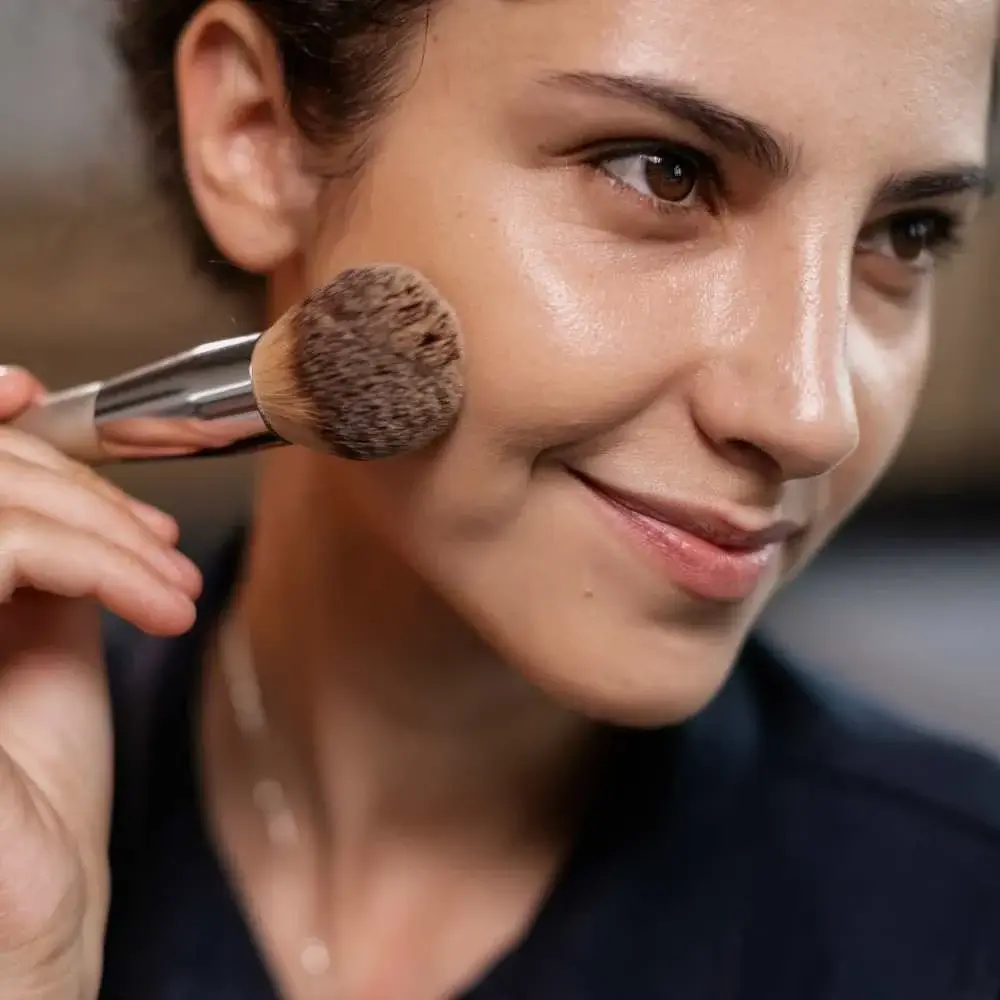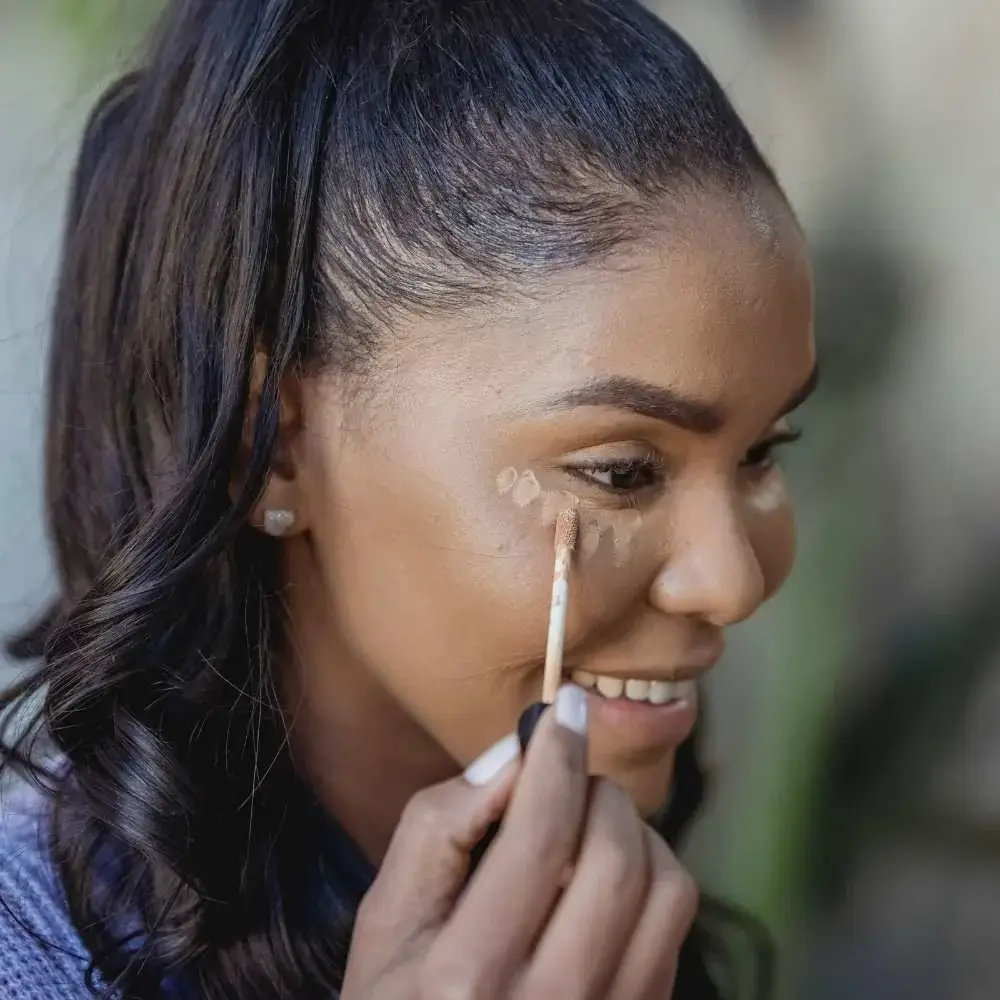Hello there, skincare enthusiasts! We've all had those moments when we woke up, looked in the mirror, and gave a dramatic gasp at the sight of an unexpected pimple. But fear not, because today's article is here to save the day (and your complexion). My favorite concealer for acne, drumroll, please...is the IT Cosmetics Bye Bye Breakout Full-Coverage Acne Concealer!
Now, before you dash off to snag one, stick around as we delve into why this particular product is creating waves in the acne-prone community. This isn't just any ordinary concealer; it's a multi-tasking marvel that not only hides your blemishes but also wages war against them with its acne-fighting ingredients. And guess what? It does all this without breaking the bank.
But wait, there's more! We'll also be exploring other contenders like the affordable yet effective Neutrogena SkinClearing Blemish Concealer, the cult-favorite Tarte Shape Tape Contour Concealer, and the clean beauty champion, Ilia True Skin Serum Concealer.
So, buckle up, grab a cup of tea (or coffee if that's your jam), and let's embark on this journey to find your skin's new best friend. Trust us, your skin will thank you!

Discovering Your Acne's Arch-Nemesis: The Best Concealer!
Hey there, pimple warriors! We've all had those days where our acne decides to throw a party on our face, right? But guess what, with the right concealer, you can be the party pooper and confidently strut your stuff, because those uninvited guests are under wraps!
Now, here's the scoop. Not all concealers are superheroes for your skin; some are just wearing capes! So let's unveil the true champions for your acne-prone skin.
You see, in the concealer world, we've got two clans: the Chemical Crusaders and the Physical Protectors. The Chemical Crusaders, armed with powerhouses like salicylic acid or benzoyl peroxide, wage war against active acne, drying out those pesky pimples and stopping new ones from gatecrashing your skin party. The Physical Protectors, however, are the knights in shining armor for your scars, creating a shield between your skin and makeup, and keeping those pore-clogging bacteria at bay.
Got an active acne breakout? Team up with a Chemical Crusader. Battling with acne scars? A Physical Protector is your ally. Just remember to do a patch test before letting these heroes sweep across your face, as some may have secret ingredients your skin might not fancy.
Time for action! Whip out your clean brush or beauty sponge (because we don't want any bacteria freeloading), and blend, baby, blend! If you're teaming up with a Physical Protector, gently pat it on instead of rubbing; we don't want to ruffle any feathers, do we? And remember, less is more. Start small and build up as needed, rather than going full-throttle and risking an acne uprising.
Acne sure can be a tough cookie to crack, but with the right concealer, you can march through your day without worry. So, whether you're siding with a Chemical Crusader or a Physical Protector, remember to test, keep your tools clean, blend like a pro, and voila!
Looking for that magic wand to banish your acne blues? Your search ends here! We've uncovered the best concealer for acne, and it's ready to join your skincare army. This concealer is a nutrient-packed powerhouse that heals your skin while providing a cover-up that lasts from dawn to dusk. Its light-as-air formula won't make your skin feel like it's doing a grease dance and promises not to clog your pores, making it an ace pick for sensitive skin types. So, ready to meet your skin's new best friend? Click the link and discover your perfect acne-fighting match today!

How to Choose Your Favorite Concealer for Acne-Prone Skin
So, you're standing in front of a makeup aisle, scanning through dozens, if not hundreds, of products, each one promising to be your new favorite concealer for acne. It's overwhelming, isn't it?
Let's take a step back and simplify the process.
Understanding Your Skin
First, you need to understand your skin type. This is crucial because not all concealers are suitable for all skin types. For those with acne-prone skin, this becomes particularly important.
Look for Non-Comedogenic Products
When you're dealing with acne, the last thing you want is a product that clogs your pores even more. Look for concealers labeled as "non-comedogenic". These are specifically designed not to block your pores, reducing the risk of further breakouts.
The Importance of Shade Matching
Choosing a shade that matches your skin tone is vital. A concealer that's too light or too dark will only draw more attention to the spots you're trying to hide. Do a patch test on your wrist or jawline before purchasing.
Cream vs. Liquid Concealer
Cream concealers offer high coverage and are great for covering up acne scars. However, they can feel heavy on the skin. Liquid concealers, on the other hand, have a lighter feel and blend easily, but might not cover severe acne as effectively.
Ingredients Matter
Some concealers come with added ingredients like salicylic acid or benzoyl peroxide, which can help treat acne. While these can be beneficial, make sure you're not allergic to any of these ingredients.
Real-Life Example: Jane's Journey to Find Her Favorite Concealer for Acne
Let's look at the story of Jane, a 25-year-old with acne-prone skin. Jane had tried multiple concealers, but none seemed to work. They either made her break out more or didn't provide enough coverage. That was until she discovered a non-comedogenic, salicylic acid-infused concealer. She did a patch test, found the perfect shade, and it was a match! This concealer not only covered her blemishes but also helped reduce them over time. It soon became her favorite concealer for acne.
Finding your favorite concealer for acne isn't just about the brand or price. It's about understanding your skin, doing your research, and maybe a bit of trial and error. Remember, what works for others may not work for you, so keep exploring until you find your perfect match!

Discovering Your Favorite Concealer for Acne: A Deep Dive into Chemical and Physical Concealers
Acne can be a real confidence-killer, but the right concealer can turn the tide. It's all about finding that favorite concealer for acne - the one that blends seamlessly with your skin while covering those pesky blemishes.
A concealer is a type of cosmetic that masks dark circles, age spots, large pores, and other small blemishes visible on the skin. It's similar to foundation, but thicker and used to hide different pigments by blending the imperfection into the surrounding skin tone.
The Battle of Concealers: Chemical Vs. Physical
When it comes to concealers, especially for acne-prone skin, there are two main types you might come across: chemical and physical concealers.
Chemical Concealers: Magic in a Tube?
Chemical concealers are often lauded as a favorite concealer for acne due to their active ingredients. These often include salicylic acid or benzoyl peroxide, both of which are known to fight acne.
These ingredients work by reducing inflammation, killing bacteria, and promoting skin cell turnover. This means they don't just cover up your acne - they actively combat it.
However, not everyone's skin reacts well to these chemicals. Some people might experience dryness, redness, or even more breakouts. It's essential to do a patch test before applying a chemical concealer all over your face.
Physical Concealers: A Gentle Alternative
On the other hand, physical concealers use mineral-based formulations to provide coverage. They're often recommended for sensitive or allergy-prone skin as they contain fewer irritants.
The key ingredients in physical concealers are minerals like zinc oxide and titanium dioxide. These minerals sit on top of the skin, providing a physical barrier rather than penetrating the skin like their chemical counterparts.
While physical concealers might not actively treat acne, they are less likely to cause irritation or exacerbate existing breakouts. This makes them a good option if your skin is sensitive to chemical ingredients.
Real-Life Scenario: Meet Sarah and Emma
Let's consider two friends, Sarah and Emma, both dealing with acne but having completely different experiences with concealers.
Sarah tried a popular chemical concealer, drawn in by promises of acne-fighting power. Unfortunately, she experienced dryness and irritation, leading her to switch to a physical concealer. With its mineral formulation, she found her favorite concealer for acne that didn't irritate her skin.
Emma, however, had a different experience. She chose a chemical concealer infused with salicylic acid, and her skin responded well. It helped reduce her breakouts while offering the coverage she desired. For Emma, this became her go-to concealer for acne.
When it comes to finding your favorite concealer for acne, it's not a one-size-fits-all situation. Whether a chemical or physical concealer will suit you best depends on your skin type, sensitivity, and how your skin reacts to certain ingredients. Always remember to patch test new products and give your skin time to adjust.

The Quest for Your Favorite Concealer for Acne: The Essential Step of Product Testing
Finding your favorite concealer for acne can feel like searching for a needle in a haystack. There are countless products on the market, each promising to be the solution to your skin woes. But there's an important step that many overlook in their quest for the perfect concealer - testing the product before full application.
Why Test Before You Invest?
You wouldn’t buy a car without taking it for a test drive, right? The same principle applies to finding your favorite concealer for acne. Here's why:
Skin Reactions
Not every product will suit every skin type. Some ingredients may cause irritation, redness, itching, or even more breakouts. By testing a product first, you can minimize the risk of a full-blown reaction.
Color Matching
A concealer that doesn't match your skin tone can highlight, rather than hide, your acne. Testing allows you to find a shade that blends seamlessly with your skin.
Coverage and Finish
Different concealers offer different levels of coverage and finishes (matte, dewy, etc.). Testing helps you find a product that meets your personal preferences and needs.
How to Test Your Potential Favorite Concealer for Acne
Testing a concealer isn't just about dabbing a bit on your hand. Here's a step-by-step guide:
- Patch Test: Apply a small amount of the product on your inner wrist or behind your ear. Wait 24 hours to see if any irritation occurs.
- Color Test: Apply a small amount of the product on your jawline. This area best represents your face’s natural color.
- Wear Test: If the patch and color tests are successful, apply the product to any acne spots and wear it for a full day. This will give you a better idea of the concealer's longevity and performance throughout the day.
Real-Life Experience: Michael's Journey to His Favorite Concealer for Acne
Let's take the example of Michael, a teenager struggling with acne. Eager to find a solution, he purchased a highly-rated concealer without testing it first. Unfortunately, the product caused a severe reaction, leading to more breakouts.
Disheartened but determined, Michael decided to try again. But this time, he tested several concealers before making a decision. After a few trials, he found one that did not irritate his skin, matched his skin tone, and provided the desired coverage. This became his favorite concealer for acne, transforming his skincare routine and boosting his confidence.
Testing a product before full application is an essential step in finding your favorite concealer for acne. It might require a bit of patience, but the results are well worth it. Remember, when it comes to skincare and makeup, what works for others might not work for you. Always listen to your skin!

Unveiling the Secrets: Your Burning Questions Answered about Finding the Perfect Acne Concealer
Can acne-prone skin use concealer?
Absolutely, acne-prone skin can definitely use a concealer! Think of it as your secret weapon in the battle against blemishes. The trick is finding your favorite concealer for acne that suits your skin type and doesn't trigger any flare-ups. Look for non-comedogenic concealers - these are specially formulated to avoid clogging your pores. Bonus points if they contain acne-fighting ingredients like salicylic acid or tea tree oil! Remember, though, everyone's skin is unique. What works wonders for your best friend might not do the same for you. So, keep an open mind, be ready for some trial and error, and before you know it, you'll find your MVP in the game of hide and seek with those pesky pimples!
How do you prevent acne from concealer?
Ah, the age-old question: how do you keep your favorite concealer for acne from becoming a double agent and actually causing more breakouts? Well, fear not, my friend, there are ways to outsmart this sneaky situation! First off, always look for concealers labeled non-comedogenic or oil-free. These are less likely to clog your pores and stage a pimple party on your face. Secondly, don't forget to thoroughly clean your makeup brushes regularly. They can be hotbeds for bacteria if left unwashed. Lastly, always remove your makeup before bed. No matter how tired you are, leaving concealer on overnight is like sending a personal invitation to the Acne Avengers. So, keep these tips in mind, and your concealer will stay loyal in the fight against acne!
Do you use concealer or foundation to cover acne?
Oh, the great debate: concealer or foundation for covering acne? Well, let's end the suspense - the answer is both! Here's the scoop: foundation is your base, providing an overall even skin tone, while concealer is your trusty sidekick, swooping in to specifically tackle those stubborn blemishes. Start with a thin layer of foundation all over your face. Then, apply your favorite concealer for acne on top of any spots that are still visible. This tag-team approach will give you a more natural look, without making you feel like you're wearing a mask. Remember, the goal isn’t to hide your face, just to camouflage those pesky pimples. So, here's to teaming up foundation and concealer for a winning acne-covering combo!
How do I choose a concealer color?
Choosing a concealer color can feel like trying to solve a Rubik's cube - confusing and a little frustrating. But fear not, I've got some tips to turn you into a concealer-color-choosing pro! The golden rule is: your concealer should be one or two shades lighter than your foundation. This helps brighten up the under-eye area and highlight certain features. But when it comes to covering acne, it's better to match the concealer to your skin tone or foundation color. This way, you avoid drawing attention to the areas you're trying to camouflage. So, next time you're in the makeup aisle, don't let the array of colors intimidate you. You've got this, and soon enough, you'll find your favorite concealer for acne that blends seamlessly with your skin!
Should I choose lighter or darker concealer?
Ah, the eternal beauty conundrum: to go lighter or darker with concealer? Well, let's shed some light (or maybe some darkness?) on this topic. When it comes to under-eye circles, you'd want to go a shade or two lighter to brighten up those sleepy peepers. But when we're talking about covering acne, it's a different story. In this case, you want to match your concealer to your skin tone or foundation color. This helps to blend the blemishes into the background instead of spotlighting them like a disco ball. So, remember, for under-eyes, think light and bright, but for acne, match it right! Soon enough, your favorite concealer for acne will feel like a magic wand in your makeup bag.
Read our article about best makeup sponges here!
Read our article about best concealer for dry skin here!
Read our article about best tattoo numbing cream here!







